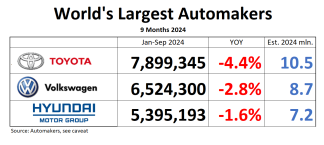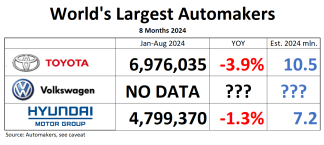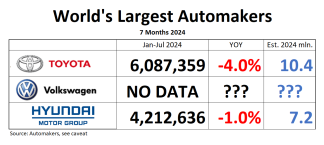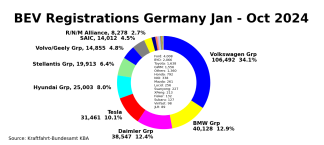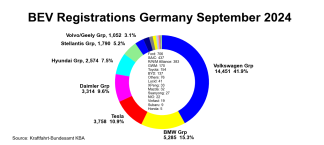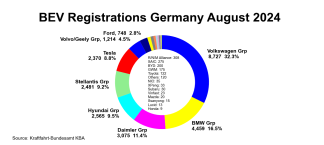When United Auto Workers President Bob King staked the future of his union on a campaign to organize a transplant auto factory, the desperation was palpable. Decades of membership decline culminating in the drama of GM and Chrysler’s bankruptcy-bailout had left the UAW reeling. Few observers gave the union, which hadn’t organized a transplant auto factory in the US since 1978, much chance of success.
Now the UAW stands at the brink of a historical act of redemption, having all but claimed victory in the drive to organize Volkswagen’s Chattanooga, TN plant. While we wait to see whether that claim holds up, it’s worth examining a few intriguing but undercovered aspects of this case and assess what the impact of a resurgent UAW could be.
Though UAW members have built cars for various Japanese automakers in joint-venture plants, one of which eventually became the UAW-represented Mitsubishi plant in Normal, IL, only one foreign automaker has ever opened a wholly-owned unionized plant in the US before: Volkswagen. Opened in 1978, the VW Westmoreland plant was the first foreign “transplant” factory in the US, and its near-complete failure was an object lesson to the Japanese automakers in what not to do. Though it was open for only a decade, the Westmoreland plant’s impact is felt to this day.
The UAW may not have been the only thing wrong with Westmoreland, but it was one of the major problems. After witnessing wildcat strikes within six months of Westmoreland’s opening, accompanied by chants of “No Money, No Bunny” (in reference to the VW Rabbit built there), Toyota, Honda and Nissan opted to open non-union factories away from UAW strongholds. Subsequent waves of investment in US auto plants by German and Korean followed suit. Volkswagen’s UAW experiment gave the American South the auto industry it enjoys today.
So it should be ironic that Volkswagen returned to the US decades after Westmoreland was shuttered and built a non-union plant in Tennessee, only to see it organized by the UAW. Unfortunately for irony fans, it seems there’s a consistent thread between these two plants: the German union IG Metall. As Reuters reported in 2011:
Back in 1978, IG Metall helped the UAW organize the first big foreign factory in the United States, VW’s Westmoreland Assembly Plant in Pennsylvania.
In that instance, a former senior VW executive recalled, IG Metall told VW to look favorably on the UAW’s efforts. The message was, “Help them organize, or else,” said the former executive, who asked not to be identified.
Having failed to make headway with Japanese and Korean transplant factories, it’s clear that the UAW looked at its history and realized that partnering with IG Metall to organize Chattanooga was its best bet. Sure enough, IG Metall has pushed Chattanooga workers to organize, sent its own representatives to several UAW organizing campaigns and according to Senator Bob Corker, Metall’s VW board member pressured plant staff to sign a letter that appeared to approve of the UAW effort.
On the one hand, this is hardly surprising: UAW boss Bob King has repeatedly emphasized the UAW’s need to seek international partners to remain relevant in a global economy. On the other hand, it’s not entirely clear what the understanding between the UAW and Metall really is. After all, the substantive differences between the two unions are vast: not only does Metall get board representation under the German system, it negotiates work rules every 15 years instead of every four. And at the end of the day, the unions compete with each other for jobs as much as they cooperate.
But despite the barriers, it’s clear a relationship exists between the two unions. The key to understanding it may lie in IG Metall’s decision last year to appoint UAW President Bob King to represent its workers interests on the board of Opel, GM’s troubled European division. In comparison to competitors like Ford, GM’s European capacity cuts have been remarkably mild… is it possible that King blunted GM’s cutting blade in return for IG Metall assistance in its Southern campaign?
Such speculation is necessary only because it’s not clear what the UAW has to offer VW’s workers. Since establishing its deeply unfair two-tier wage system, the UAW does not offer higher wages or better benefits to new workers than they currently receive at nonunion plants like Chattanooga. What it does bring to the table is a terrible reputation with workers and management alike, having played a key role in the downfall of the Detroit automakers while alienating thousands of its own rank and file. With such an unconvincing pitch, it’s no wonder the UAW is having to lean on IG Metall to create the impression that VW wants Chattanooga workers to join the union.
But does it? VW CEO Martin Winterkorn has made it clear that
“VW’s future is increasingly being decided in China, Russia, India, the Americas and Southeast Asia.”
It’s no coincidence that Volkswagen’s global works council does not currently represent workers from any of those areas (with the exception of Mexico, Brazil and Argentina). It’s impossible to look at VW’s strategy and conclude that UAW organization wouldn’t hurt the chances of a plant expansion at Chattanooga, let alone the construction of a new US plant. And with plans already in the works to build new Audi product in the NAFTA zone, the UAW’s job-killing effect will likely be seen sooner rather than later. After all, Mexico may have unions and works councils, but it’s unlikely that Chattanooga workers would trade works council representation for for Mexican-level wages.
Which leaves three basic options: one, The UAW organizes Chattanooga; two, an independent works council is created at Chattanooga; and three, nothing changes. At this point it seems that VW hopes to split the difference with option two, but the UAW insists that an independent works council would violate US labor laws forbidding “company union.” In short, there’s no evidence that Chattanooga workers want or need a works council, but plenty of evidence that it is the perfect wedge with which the UAW can once again insinuate itself into Volkswagen’s US operations. Which means there are really only two choices: either VW plays by the UAW rules that helped bring down GM and Chrysler, or they follow the path of the Japanese, Koreans and fellow Germans took in the wake of Westmoreland.






